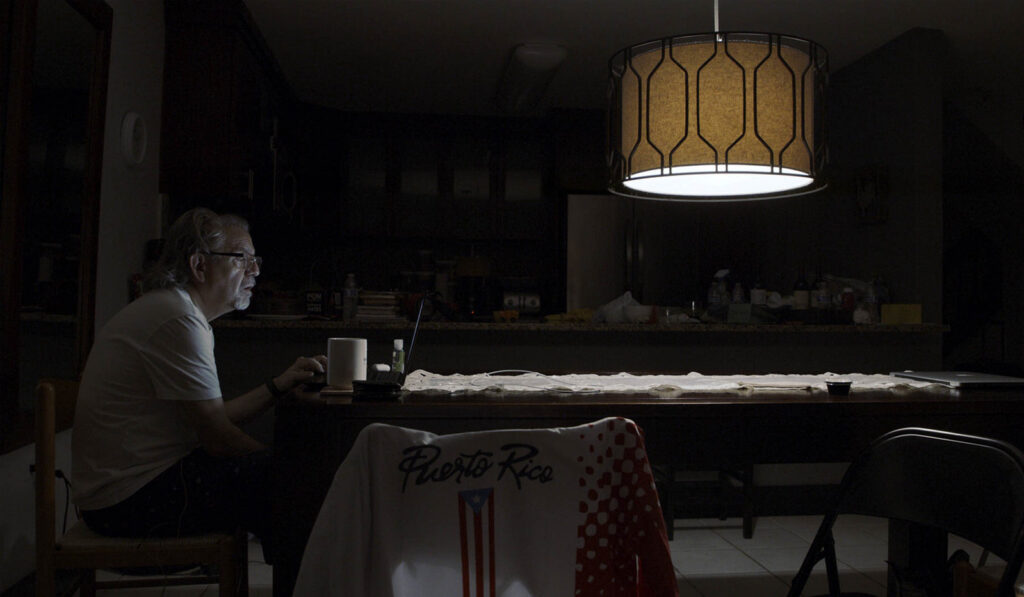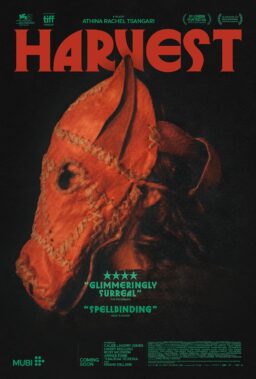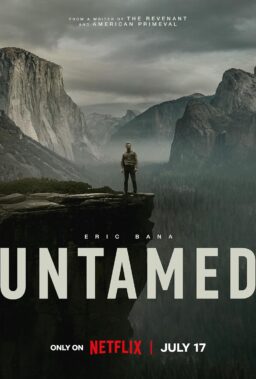Fans of Lin-Manuel Miranda may be used to seeing his father, Luis, often smiling by his son’s side. They share many similar qualities, like facial expressions, a hard work ethic, and outgoing personalities. But before “Hamilton” and “In the Heights” made Lin-Manuel a household name, many New Yorkers in politics would recognize Luis Miranda as a tough Democratic strategist who rose through the ranks during Mayor Ed Koch’s administration to advocate for Latino constituents in the city and state of New York.
In John James’ candid documentary, “Siempre, Luis,” the elder Miranda is back in the spotlight, recalling old political battles and emotional struggles as he campaigns for a candidate one last time and helps arrange Lin-Manuel’s historic “Hamilton” run in Puerto Rico. Miranda and James sat down with RogerEbert.com at the Sundance Film Festival to talk about Miranda’s political past, supporting his kids and meeting another famous Puerto Rican, Walter Mercado.
When did you decide to profile Luis Miranda?
JOHN JAMES: I worked with Luis Miranda in 2008 at a political consulting firm. He had an office there. He ran campaigns. That’s what he did for a living. I was just brought in another company, working on political campaigns myself. We met in that office. He had a citrus-colored guayabera with a turtleneck underneath it. Clearly a sign that he was not giving up the place where he was from …
LUIS MIRANDA: And that I don’t give a shit!

JJ: My mother’s Puerto Rican, so that became a basis of the conversation. We started working together. I ended up working on more projects with Luis, and a bond formed. I kind of got to know him because of his story. I was always intrigued by this exodus, the 18-year-old Puerto Rican with a steady job working at Sears. He’s very charismatic, and very quickly they can see that he’s someone who could handle all these uncomfortable conversations at Sears. He just picks up and decides he has bigger goals for himself and leaves and comes to New York in the late ’70s—a difficult time—and quickly finds himself working for Mayor Koch. After Koch, he ends up running Chuck Schumer’s senate campaign, gets him elected. Hillary comes along. The only reason you wouldn’t tell this story is because you’re not paying attention. You’re maybe not Latino, and you don’t see that a remarkable achievement that this is.
Since you were always in control of political campaigns and the narratives and messaging that goes with them, what was it like for you to become the subject of a documentary and give up that control?
LM: Very uncomfortable. If I’m on camera, my candidate did something really wrong that I have to go on camera to explain. My life has been one of pushing a candidate, pushing a cause, an organization, or my son. All of a sudden to be the focus of it—it’s challenging and uncomfortable. But I do give JJ and Carlos [Garcia de Dios, producer] credit. They did become a fly on the wall where the entire family felt comfortable to have him around all the time.
Was there a favorite memory from the campaign trail that didn’t quite make the cut?
LM: For me, electing Guillermo Linares to city council in ‘91, as the first Dominican ever elected to office in the United States, was very important, personally. Years later, electing Adriano Espaillat to Congress, the first Dominican ever elected [to Congress]. If he would have come now, he would have been a DACA kid because he came here illegally. One that makes it [into the film] is Letitia James, the first African American woman to be elected statewide. Those are the sort of campaigns that I’m interested in getting involved in because they open doors and show others the possibilities of politics.
How have you and Lin-Manuel figured out such a supportive working relationship?
LM: I have learned that I don’t get involved in Lin-Manuel’s creative process or decisions. He is way better than me, and anyone I know. So those are his, and only his. Doesn’t mean that I don’t give him notes. I can’t help myself. He could tell me, “Thank you, dad, but I don’t want your notes. I already have five sets of notes.” But I do get involved in the kinds of decisions that I believe are important, artistically, for him that go hand-in-hand with being a person, an artist, a dad—a whole person. At the end of the day, whoever you are in public is the same person that needs to happens publicly. Otherwise, you’re a fake. So, I am always worrying about all the administrative stuff, everyone around us and how all of that comes together. I worry about all of that. I just happened to have my daughter who’s also great at that as well—making sure that everything he does artistically, philanthropically as a person, is part of a mosaic that tells the same story.
You’re pretty upfront about your politics throughout the documentary. What are your thoughts as we head into the 2020 election?
LM: I believe that the most important goal of anyone who wants this country to succeed is to defeat Trump. I really believe that is an aspirational goal if we want to continue to have a country. We made a wrong turn, and we have to right that wrong. I resigned from two boards because any waking moment, I am going to spend doing anything and everything I can to convince people to impeach Trump.

There are a number of emotional moments in the documentary when you’re in Puerto Rico and when you talk about the island. What comes to mind in those moments?
LM: It’s a country that has gone through so much. I see my brother, my sister, my sister-in-law, who were here with us and just flew in from Puerto Rico yesterday. They’re also in the film. When we got up this morning, typical Puerto Rican household, there’s like four people cooking on top of each other. My wife looks at me and I’m like, I think we’ll sit and eat. I don’t think another cook fits.
But the first conversation we had with how many earthquakes happened last night? It’s such a part of everyone’s life now. The dead. The governor. There are more earthquakes. People in Ponce are going crazy finding water, and then they find bottles of water that were there since Hurricane Maria. And then the governor lies and says she doesn’t know anything about it. It’s amazing that there are only a couple of protests per day given what the island has to go through. I just hope that in this election … my job is to get rid of Trump because I’m here and that’s the life that I chose to live as an American and as a Puerto Rican. That’s my responsibility. I just hope that the people in Puerto Rico can find leadership that is honest and that can do the job.
The documentary opens and closes with a scene of Puerto Rican students protesting Lin-Manuel during a public event. What compelled you to go up to talk to them?
LM: First thing I see, is me on that stage in the ‘70s. When I was in that same university in that same theater, we protested. When you live in a territory, and your destiny is run by someone else, there’s always reasons to protest. I immediately say they’re telling a story, and it’s an important story to tell, particularly in this juncture in the history of the island. So that’s when they [security] asked me and I said, let them be. And then at some point I felt okay, now you’ve had your shot. You also have to understand that the audience is now getting restless. They got there to hear Lin-Manuel, not to hear a protest. I don’t want the audience to turn against these kids because they had an important story to tell. I also knew because I knew that they were me, that I could convince them to leave the stage. They had already made the point.
You and Lin-Manuel are in three Sundance documentaries—“Siempre Luis,” “We Are Freestyle Love Supreme” and “Mucho Mucho Amor,” which is about famed astrologer Walter Mercado. What was it like to share the screen with another Puerto Rican legend in “Mucho Mucho Amor”?
LM: I met Walter Mercado when there was no Walter Mercado! Walter Mercado was a good friend of my uncle who was an actor in Puerto Rico and who died too young. Walter was one of the people who hung around the house. And then he became Walter Mercado. I believe I’m there when they’re recording Lin-Manuel. Walter Mercado is one of those figures that is greater than life. It’s someone who can be a male or female, and every Puerto Rican adored. That reality never moved anyone against him.
When we were in Puerto Rico during “Hamilton,” we were told that Walter did your star chart and he would love to meet with you guys. Lin-Manuel and I were like two little kids—”Oh my god, we got to go! We’re going to go see Walter Mercado!” When I walked in and I sat, Walter Mercado said, “I know you have five planets on your back.” I say, coño, that’s why I have so much shit to do, I have five planets on my back! But Walter Mercado came into our home every single week of our entire lives. How can you say no to Walter? You cannot. In fact, we happen to be in Puerto Rico when he passed and had the opportunity to go and express our sympathy to the family.












